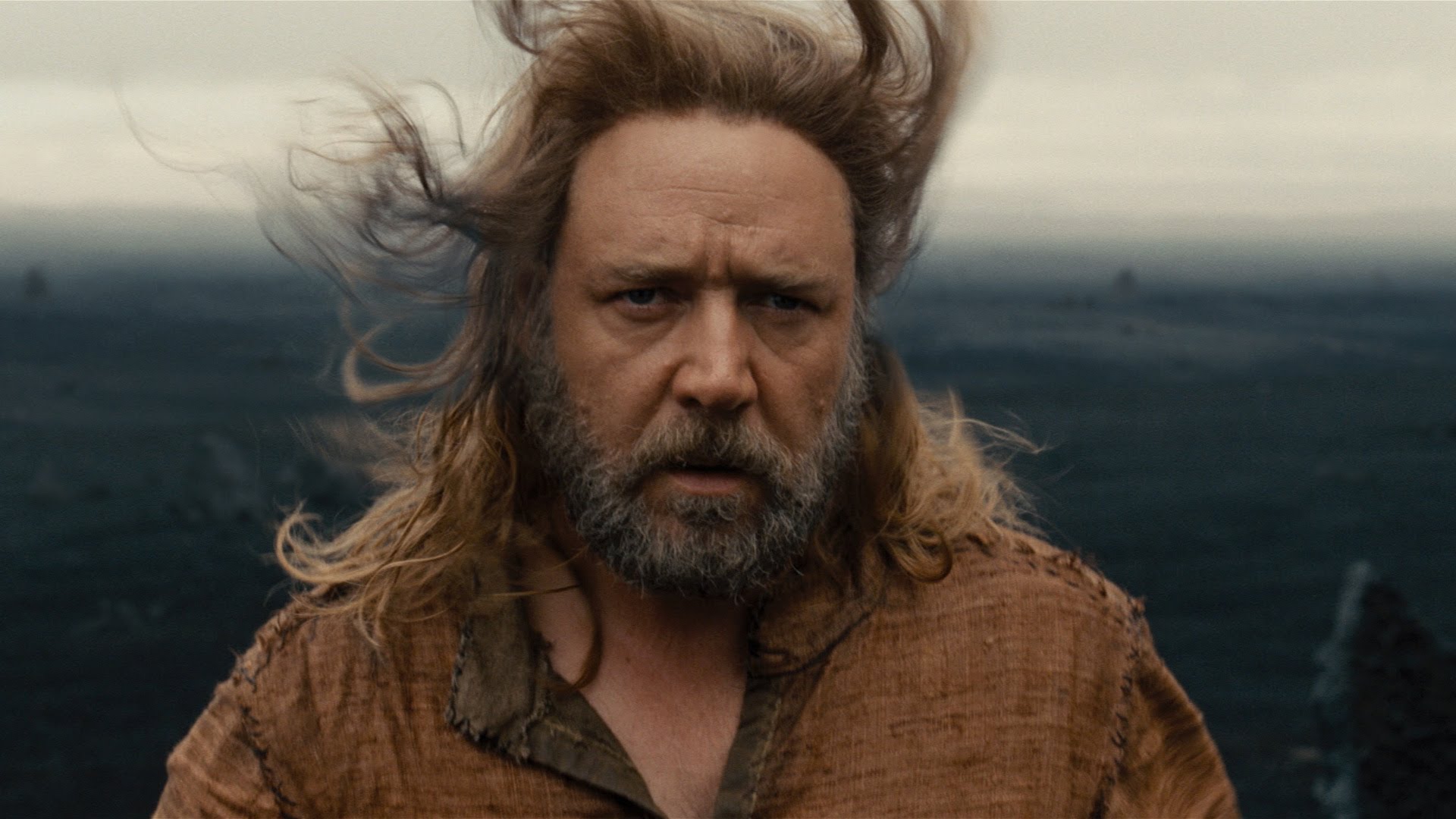
There’s a lot of talk every time critics and reviewers get a movie “wrong”. Search for lists of unsung great classics that were panned by critics and you’ll find many – but how about when the audience don’t really get the spirit of a film?
We, as spectators, are as subject to making mistakes of judgement as professional critics are. Can we admit when we’re wrong? Since evaluating a movie is such a subjective and personal thing, maybe we can’t – but here are some films that may warrant another look, if you can muster the will to try and see them in a different angle.
15. Oz: The Great and Powerful (Sam Raimi, 2013)
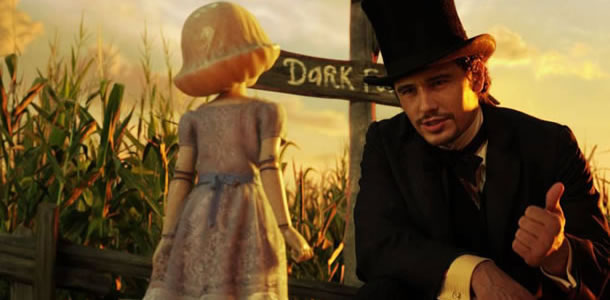
With the sequel in the works (yes, seriously), Oz the Great and Powerful is ripe for rediscovery as an enjoyable and nostalgic adventure helmed by a talented director and with phenomenal casting decisions. It’s hard to tell the “origin story” of a classic tale and not sound superfluous or (like this year’s Pan) plain wrong.
Unlike a few of the movies on this list, Oz is unapologetically a blockbuster, complete with lush visuals that owe more than a little to Tim Burton’s Alice in Wonderland and an A-list cast top-billed by James Franco, the perfect choice to play small-time magician and crook Oz, and the story that made him the famous wizard from L. Frank Baum’s tale.
Screenwriters David Lindsay-Abaire (“Rabbit Hole”) and Mitchell Kapner (“Romeo Must Die”) approach the story with style, humor and a fresh new angle, the actors and Raimi don’t fall for that infamous cynic tone of a few “rebranding” tries made by Hollywood, and in the end the movie stands as both a fun modern adventure and a huge homage to the tone and the ingenuity of old Hollywood.
14. After the Dark (John Huddles, 2013)
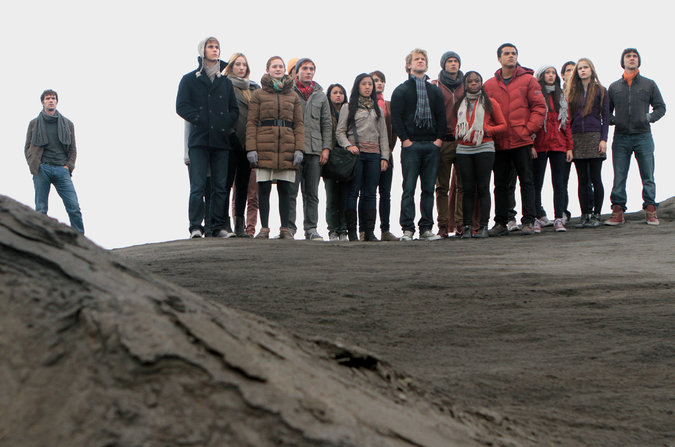
The ambiguity of the ending (take that as a warning, people who don’t like open-ended stories) was crassly misunderstood in John Huddle’s very peculiar classroom drama, After the Dark. Showing a class of philosophy students from all over the world in their last class of the semester, discussing the possible outcomes and priorities in the event of a global natural disaster, the movie written and directed by Huddles is a weirdly paced and imagined parable for the confrontation of cynicism and idealism, practicality and emotion – these are fundamental philosophical question the movie poses, and though Huddles isn’t the most brilliant screenwriter to ever deal with them, he still has a lot of guts to tackle these subjects and stay true to their nature, never surrendering to the pressure of a conventional “Hollywood” ending.
That virtue in and on itself should be enough for the movie to warrant a second viewing, but there’s also an amazing young cast, led by the surprisingly great Sophie Lowe (Once Upon a Time in Wonderland), a perfect minimalist and serene opposition to James D’Arcy intensely nervous professor. Daryl Sabara, Bonnie Wright and Rhys Wakerfield (keep an eye on him) do great jobs themselves, enacting an ingenious little concoction of a movie that is definitely worth the time.
13. Cosmopolis (David Cronenberg, 2012)
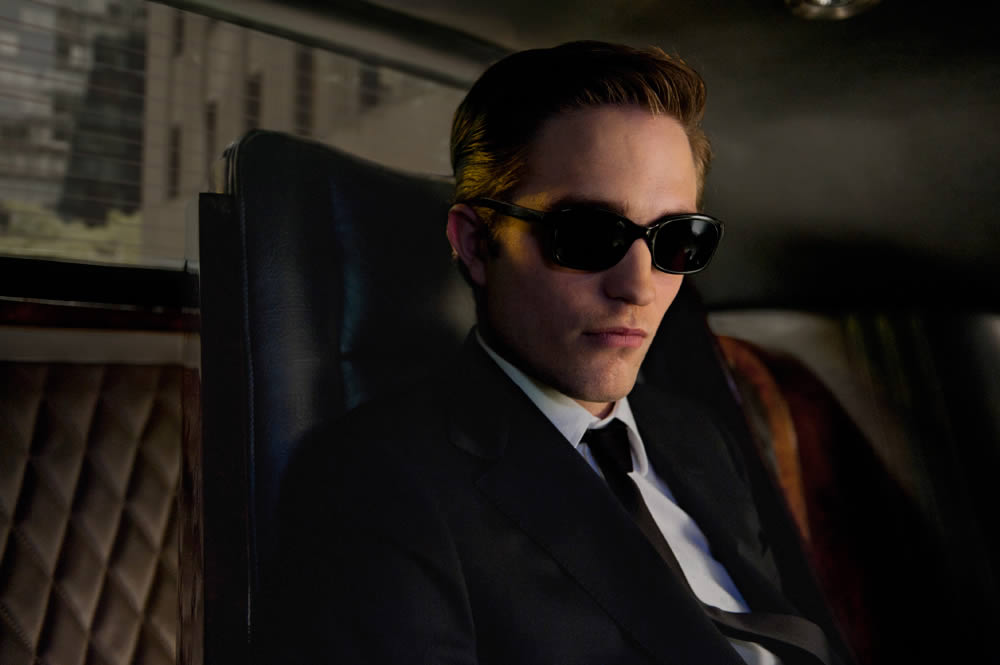
The most recent batch of Cronenberg movies have been equally praised and panned by critics and audiences. It’s been said the director finally became more “accessible” and “digestible”, trading his (in)famous body horror for more subtle, yet still disturbing, drama.
Cosmopolis is the most enigmatic of those new movies, and the one that received the worst reviews – criticized by most as a forced and clichéd attempt at “indie movie” artistry and shallow social commentary. The truth is Cosmopolis is inciting food for thought, a provoking and shamelessly hermetic commentary on the maladies of capitalism that offers up glances of visual genius by way of Cronenberg’s restless sense of discomfort.
The actors have it hard to deliver such dense dialogue, with lead Robert Pattinson carrying the weight of sparring, alone in a car, with the likes of Juliette Binoche and Sarah Gadon. Lucky for our director, Pattinson is up to the task, building his profoundly disgusted billionaire from scratch and delivering a performance that would rather be smart and subtle than charismatic or magnetic. It’s a difficult little movie Cronenberg concocts here – but when did we stop wanting that from him?
12. The Water Horse (Jay Russell, 2007)
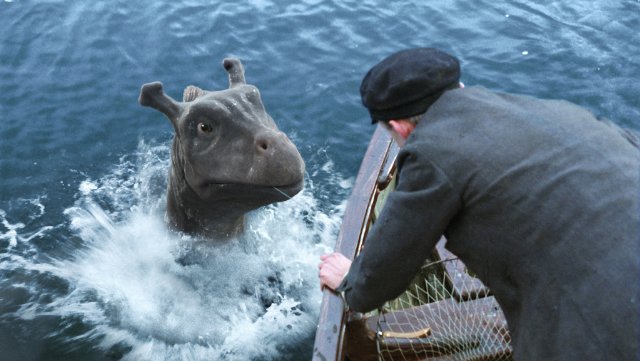
Modern spectators must be losing their sense of wonder. The Water Horse wasn’t half as seen as it deserves to be, and the ones who did see it didn’t give it much credit, really.
Director Jay Russell, known for his work in My Dog Skip, knows what to show and what to hide, how to carry a narrative in a way that will enthrall both kids and adults, if they’re willing and open to it. His leading actor, Alex Etel (Millions) is an adorable presence on screen, the special effects are on point and used in the right moments, and The Water Horse has a moving little story to tell, if we’re not too cynical to appreciate it.
Yes, the story is about what we know as the Loch Ness monster. Yes, it’s from a book by Dick King-Smith, who wrote Babe. The surprising thing is the movie takes the legendary water creature and turns it into a vehicle to tell a boy’s growing up story, and sets it in WWII, as so many children/pre-adolescent “magical” narratives have. It’s definitely worth a second look, and it has all the makings of a family-movie classic.
11. Oculus (Mike Flanagan, 2013)
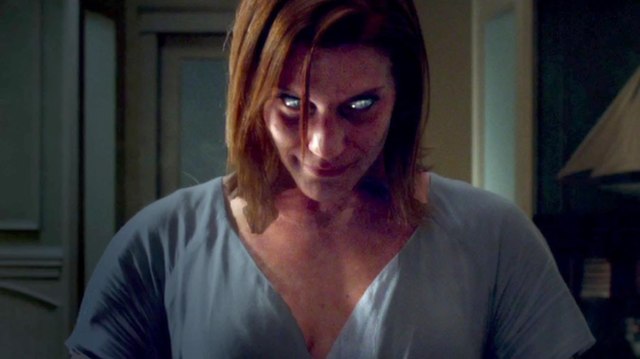
On the recent horror renaissance that gave us The Babadook, It Follows, Goodnight Mommy and quite a few other frankly superior movies, it’s easy to forget all about Oculus, a horror flick released by director Mike Flanagan (Absentia) in 2013. Well, easy if you didn’t watch it, that is – Flanagan’s movie is not a jump-scare fest or a moody psychological thriller, but it still manages to be disturbing and engaging in its own way.
The MVPs here are young leads Karen Gillan (of Doctor Who fame) and Brenton Thwaites (Maleficent), 100% in the moment as two siblings who reunite to prove his innocence once and for all after he gets out of prison for a murder a supernatural mirror committed. If it sounds goofy, the movie makes it serious, with its emotional roots deeply buried in the leads’ family past and trauma.
By the third act, when director and co-writer Flanagan really starts messing with our minds, making us not really sure what’s happening and what is just an illusion, or a flashback for that matter, the threat coming from the mirror is palpable. Oculus is great because it doesn’t just show us what the mirror does – it manipulates us like the mirror manipulates its characters. We’re in there with them, and even if it’s not the scariest ride you had in the movies this past couple of years, it’s still one worth taking.
10. Transcendence (Wally Pfister, 2014)
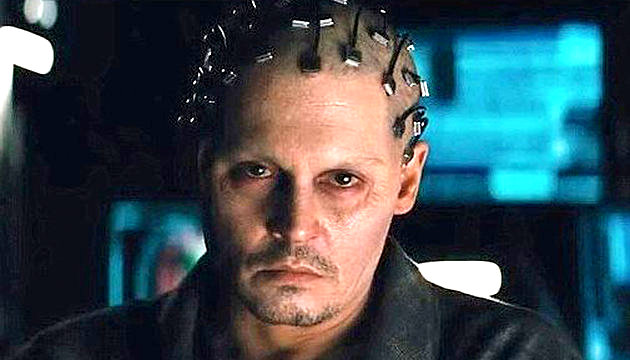
So very rarely now we get a true science fiction movie from big studios that we may be losing our touch to recognize them. In Transcendence, science fiction is not about big battles and interplanetary wars – not to say there’s something inherently wrong with that kind of sci-fi, but there’s something inherently right about think pieces like Wally Pfister’s directional debut.
Read by many as a cautionary tale about the dangers of technology, and deemed anachronistic and backwards for that, Transcendence actually is, if you pay close attention, an appropriately bleak warning about the resistance us, as a species, tend to present against new possibilities.
Johnny Depp turns in one of his most restrained (and best) performances of late as brilliant scientist Will Caster, whose conscience is uploaded into a machine by his wife Evelyn (Rebecca Hall) soon after his death. Will’s capacities as a technological deity are explored thoroughly by newcomer Jack Paglen’s script, taking the journey with the spectator to uncover and understand this entity’s plans and intentions.
Transcendence imagines a world where man can do more, and shows us the consequences and cruel ironies of this different world – that, ladies and gentlemen, is science fiction.
9. Dark Places (Gilles Paquet-Brenner, 2015)
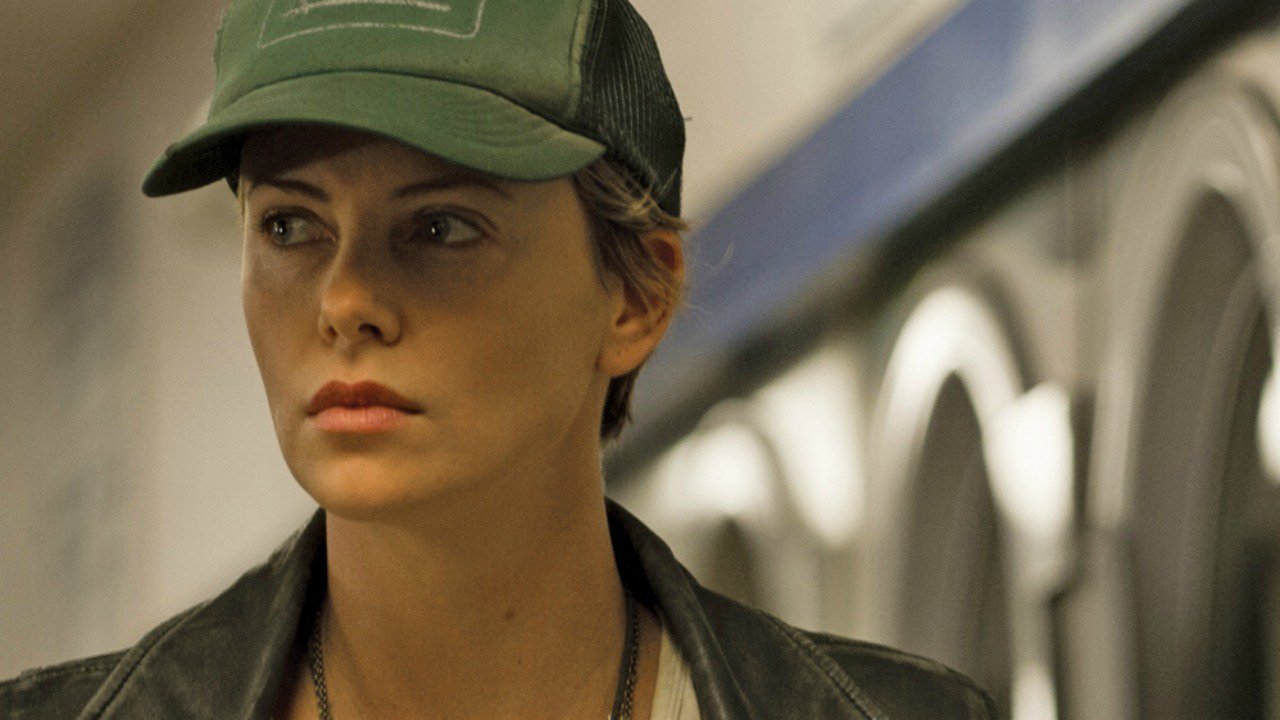
For a little while, when we were all basking in the glorious light of David Fincher’s Gone Girl, the next Gillian Flynn adaptation, Dark Places, was everyone’s most awaited movie project. And then everybody seemed to forget all about it, and the lukewarm reviews it received when it finally came out doomed Gilles Paquet-Brenner’s film to an undeserved limbo of 2015 flops.
That’s a shame, since Dark Places is the kind of 2-hour movie that screams for a director’s cut or a special edition – it has everything in place to be a great little neo-noir tale in the best tradition of Flynn’s other books, an engaging lead character arc, a brilliant actress playing it with extraordinary depth and discretion, and an inciting mystery that comments on the vices of the media and the Midwest-American mentality… if only it had more time to develop its moody atmosphere and its supporting players, it could be a near-perfect masterpiece.
There’s still plenty of reasons to watch Paquet-Brenner’s brainchild, though. Charlize Theron’s performance is, of course, the centerpiece of the movie, but she’s not alone: Christina Hendricks (Mad Men) delivers an affecting turn as the matriarch of the Day family, whose mysterious killing the sole survivor Libby (Theron) tries to investigate, decades after her older brother (Tye Sheridan in the flashbacks, Corey Stoll in the present day – both outstanding) was locked up for it.